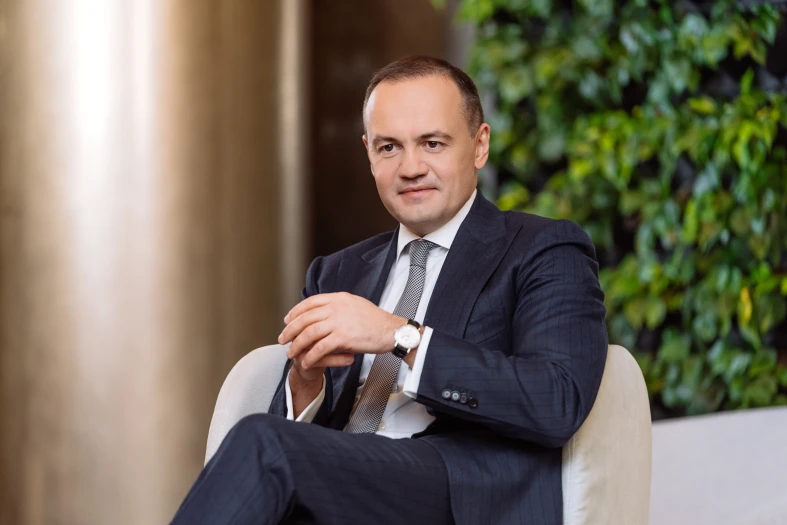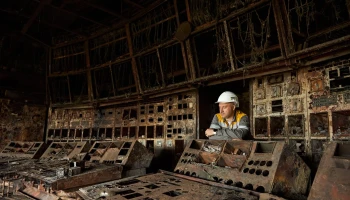There is no doubt about the need for accelerated decarbonization and clean electrification. Governments and businesses the world over have developed specific plans for decarbonization and have started taking action.
As a part of the World Economic Forum (WEF) Electricity Industry Action Group, Ukrainian energy group DTEK is contributing to the high-level paper on industrial electrification and grids to support the launch of the Global Clean Electrification Alliance in 2022. This is very important for economically developed countries and business giants, as well as for lesser developed states facing different economic challenges. After all, the issue of combating climate change has no borders.
Ukraine, one of those developing countries, is already moving rapidly to meet its ambitious goal of reducing CO2 emissions by 65% from the 1990 level by 2030. Over the past few years, Ukraine has managed to provide the preconditions for large-scale changes in the renewable energy sector and to embark on a gradual phase-out of coal-fired generation. Given its geographical size, it has the potential to make a significant contribution to the decarbonization of the European continent. Its experience in the energy transition can provide a practical guide for other emerging economies:
1. Electrification of everything. Electricity can be the basis of sustainable development – if it is generated cleanly. Electricity demand is growing every year, and industrial demand in the EU looks set increase by 25% by 2050. Given the additional likely demand for hydrogen cells, these figures could actually be much higher. That is why investment in green technology must be a priority for developing economies. When we talk about green technology, it's not just about wind turbines and solar panels; it also applies to infrastructure. According to the Forum’s System Value Approach, one of the key infrastructure components for energy transformation is an Energy Storage System (ESS) – which allows better management of the supply and demand of electricity from renewable sources that don't necessarily generate energy during hours of peak consumption.
2. Openness to change. The energy transition has entered the active phase: It is happening whether people like it or not. It is the only way we are going to be able to tackle the climate emergency. In the 17 years of our company’s existence, DTEK has undergone a huge transformation from a primarily coal-powered business to being the largest investor in renewable energy in Ukraine. Ten years ago, no one even dreamed this was possible.
Being open to change allowed us to direct our actions to fit with the global agenda. Real leaders should embrace disruption and that is what we are trying to do. For example, in 2021, together with the US company Honeywell we launched Ukraine’s first ESS. We took this step even before the creation of a comprehensive regulatory framework in our country, becoming the catalyst for a new market: A few months after our ESS opened, other players announced their ESS investment plans. The courage to lead allowed us to accelerate the process of energy transformation throughout the country, which benefits consumers and the environment.
3. Trust. Success in complex industries is only possible with extensive cooperation. We successfully cooperate with leading international partners on green energy solutions for Ukraine. Since 2012, DTEK has worked with Vestas on projects such as constructing of the 200MW Botievska wind farm (WPP), one of the largest in central and eastern Europe. We have also launched the construction of the 500MW Tilihul WPP, which will go live in 2022. Only with can stability emerge, which in turn creates a favourable investment environment. Unfortunately, Ukraine shows how the absence of trust could threaten renewable energy investments. Trust takes a very long time to build, but it can be destroyed in one day or with one government’s decision. Ukraine has huge potential for the development of renewable energy, but can only achieve it with attractive and predictable investment conditions
4. Invest in talents and technologies. The energy transformation has changed the nature of competition. There is no longer any need to compete for natural resources when it comes to electrification. Instead, people and technologies are the resources needed to ensure prosperity and inclusive growth. The most prosperous countries and companies provide the toughest competition, particularly since people and technologies are not bound by geography, unlike natural resources. One way for developing countries to compete is investment in education and research to provide a foundation for development.
5. Sustainable funding. The popularity of green finance is growing every year. A tsunami of ESG capital investment is approaching. Investment funds that use ESG criteria have more than $50 trillion in capital and are growing rapidly; according to The Economist, an average of two new ESG funds are now launched daily.
A recent report, produced by the International Energy Agency, shows that in the next decade annual clean energy investments in emerging markets and developing economies need to be multiplied by more than seven – from less than $150 billion last year to over $1 trillion. We need to create investment conditions to attract funds that will be used to develop new technologies: green hydrogen, sustainable aviation fuel, green ammonia, and others that will ensure decarbonization.
The op-ed was published exclusively for the website of the World Economic Forum under the Davos Agenda 2022 program






